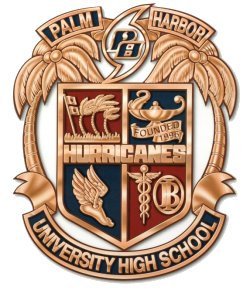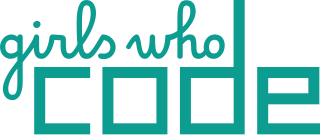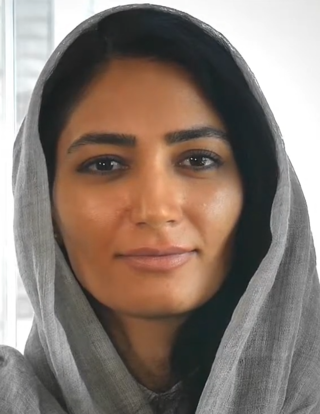Related Research Articles
NGC may refer to:
Bottega University is a for-profit, accredited distance learning university headquartered in Salt Lake City, Utah, United States.

Charles Simonyi is a Hungarian-American software architect.

Science, technology, engineering, and mathematics (STEM) is an umbrella term used to group together the distinct but related technical disciplines of science, technology, engineering, and mathematics. The term is typically used in the context of education policy or curriculum choices in schools. It has implications for workforce development, national security concerns, and immigration policy, with regard to admitting foreign students and tech workers.
Globaloria is an online learning platform oriented to K-12 curricula to teach students to design, prototype, and code educational web/mobile games and simulations with industry-standard technology as a means of learning content and creative innovation skills. Globaloria was developed in 2006 by Idit Harel as a project of the World Wide Workshop Foundation with the stated mission of providing all primary and secondary school students in the U.S. with STEM and computing education opportunities. Globaloria is noteworthy among MOOCs as it is based in constructionist learning theory and Harel's research in the MIT Media Lab.

iD Tech Camps is a summer computer camp, based in Campbell, California, that specializes in providing computer technology education to children ages 7 through 19. iD Tech Camps are held at more than 150 U.S. college and university campuses and have expanded into international locations as well.

Palm Harbor University High School, also known as PHUHS, is a Pinellas County public high school in Palm Harbor, Florida for grades 9–12. The school's mascot is the Hurricane and the school's colors are navy and maroon. The campus was built in 1996 and was originally to be known as the University High School at Palm Harbor. The word University emphasized the intended cooperation with the University of South Florida, but this did not materialize. In the 2014–2015 school year, the school added a biomedical focus to the existing CWMP program. Students at PHUHS belong to either the traditional program, which is called the University Program, or one of two magnet programs:

John Maeda is a Vice President of Design and Artificial Intelligence at Microsoft. He is an American technologist and designer whose work explores where business, design, and technology merge to make space for the "humanist technologist."

A hackerspace is a community-operated, often "not for profit", workspace where people with common interests, such as computers, machining, technology, science, digital art, or electronic art, can meet, socialize, and collaborate. Hackerspaces are comparable to other community-operated spaces with similar aims and mechanisms such as Fab Lab, men's sheds, and commercial "for-profit" companies.
World Computer Exchange (WCE) is a United States and Canada based charity organization whose mission is "to reduce the digital divide for youth in developing countries, to use our global network of partnerships to enhance communities in these countries, and to promote the reuse of electronic equipment and its ultimate disposal in an environmentally responsible manner." According to UNESCO, it is North America's largest non-profit supplier of tested used computers to schools and community organizations in developing countries.
Educational robotics teaches the design, analysis, application and operation of robots. Robots include articulated robots, mobile robots or autonomous vehicles. Educational robotics can be taught from elementary school to graduate programs. Robotics may also be used to motivate and facilitate the instruction other, often foundational, topics such as computer programming, artificial intelligence or engineering design.
CodeDay is a non-profit organization created to promote STEM education for high school and college students.
Enetai is a census-designated place (CDP) located in Kitsap County, Washington. The population was 2,497 at the 2020 census.

Girls Who Code is an international nonprofit organization that aims to support and increase the number of women in computer science. Among its programs are a summer immersion program, a specialized campus program, after-school clubs, a college club, College Loops, and a series of books. The organization is based in New York and has programs in all of the United States, Canada, India, and the United Kingdom. As of 2022, there were more than 500,000 Girls Who Code alums.
Pluralsight, LLC is an American privately held online education company that offers a variety of video training courses for software developers, IT administrators, and creative professionals through its website. Founded in 2004 by Aaron Skonnard, Keith Brown, Fritz Onion, and Bill Williams, the company has its headquarters in Draper, Utah. As of July 2018, it uses more than 1,400 subject-matter experts as authors, and offers more than 7,000 courses in its catalog. Since first moving its courses online in 2007, the company has expanded, developing a full enterprise platform, and adding skills assessment modules.

Wonder Workshop is an education and robotics startup based in Silicon Valley in the United States. Formerly called Play-i, Wonder Workshop ran a crowdfunding campaign in November 2013, where they introduced the robots Bo and Yana. They were subsequently renamed Dash and Dot before their launch in 2014. The company has currently raised $15.9 million in funding from Madrona Venture Group, CRV, WI Harper, Google Ventures, and others.

Tracy Rector is an American filmmaker, curator, and arts advocate based in Seattle, Washington. She is the executive director and co-founder of Longhouse Media, an Indigenous and POC media arts organization and home of the nationally acclaimed program Native Lens. She has worked as an education consultant at the Seattle Art Museum, as a native naturalist for the Olympic Sculpture Park, and has developed curriculum for IslandWood, an environmental education center.

Fereshteh Forough is an Afghan social activist and the CEO and founder of Code to Inspire (CTI), the first coding school for girls in Afghanistan. She is an advocate for gender equality and the empowerment of women in developing countries through digital literacy, education, and financial independence.
Patricia 'Patsy' L. Whitefoot is a member of Yakama Nation, is Indigenous elder, activist and professional educator along with being the traditional food gatherer for the Toppenish Creek Longhouse. She served as the President of the National Indian Education Association and President Obama appointed her as a member of the National Advisory Council on Indian Education. She is a prominent advocate for Missing and Murdered Indigenous Women, and Indigenous rights.
The Robotics Education & Competition Foundation is a 501(c)(3) non-profit organization best known for managing competitions and programs for the VEX Robotics Competition. Over 1.1 million students have participated in RECF programs around the world. The organization’s mission is to provide more students with the opportunity to engage in STEM.
References
- 1 2 McGrane, Clare (2016-08-18). "City of Seattle awards $320,000 to programs bringing tech to underserved communities". GeekWire. Retrieved 2017-03-04.
- ↑ "Event to highlight work of Native Girls Code program". Queen Anne & Magnolia News. 2015-11-12. Retrieved 2025-01-04.
- 1 2 Lyke, Mary Lynn (July 20, 2016). "iSchool faculty, students help expose Native girls to tech". Information School at University of Washington. Retrieved 2017-03-04.
- ↑ "Native Girls Code, helping diversify STEM". University of Washington Bothell. 2017-04-05. Retrieved 2025-01-05.
- ↑ Cain, Sydney (2019-05-29). "Six ways Northwest Natives are using tech to save their languages". The Seattle Globalist . Retrieved 2025-01-05.
- ↑ Tzou, Carrie; Starks, Elizabeth; Meixi; Rambayon, Amanda; Ortiz, Sara Marie; Peterson, Shawn; Gladstone, Paradise; Tail, Ellie; Chang, Arianna; Andrew, Elise; Nevarez, Xochitl; Braun, Ashley; Bang, Megan (2020-07-01). "Codesigning With Indigenous Families and Educators: Creating Robotics Education That Contributes to Indigenous Resurgence". Connected Science Learning. 2 (3). doi:10.1080/24758779.2020.12318741.
- ↑ "Native Girls Code's Digital Kiosk". Na'ah Illahee Fund. 2023-03-03. Retrieved 2025-01-05.